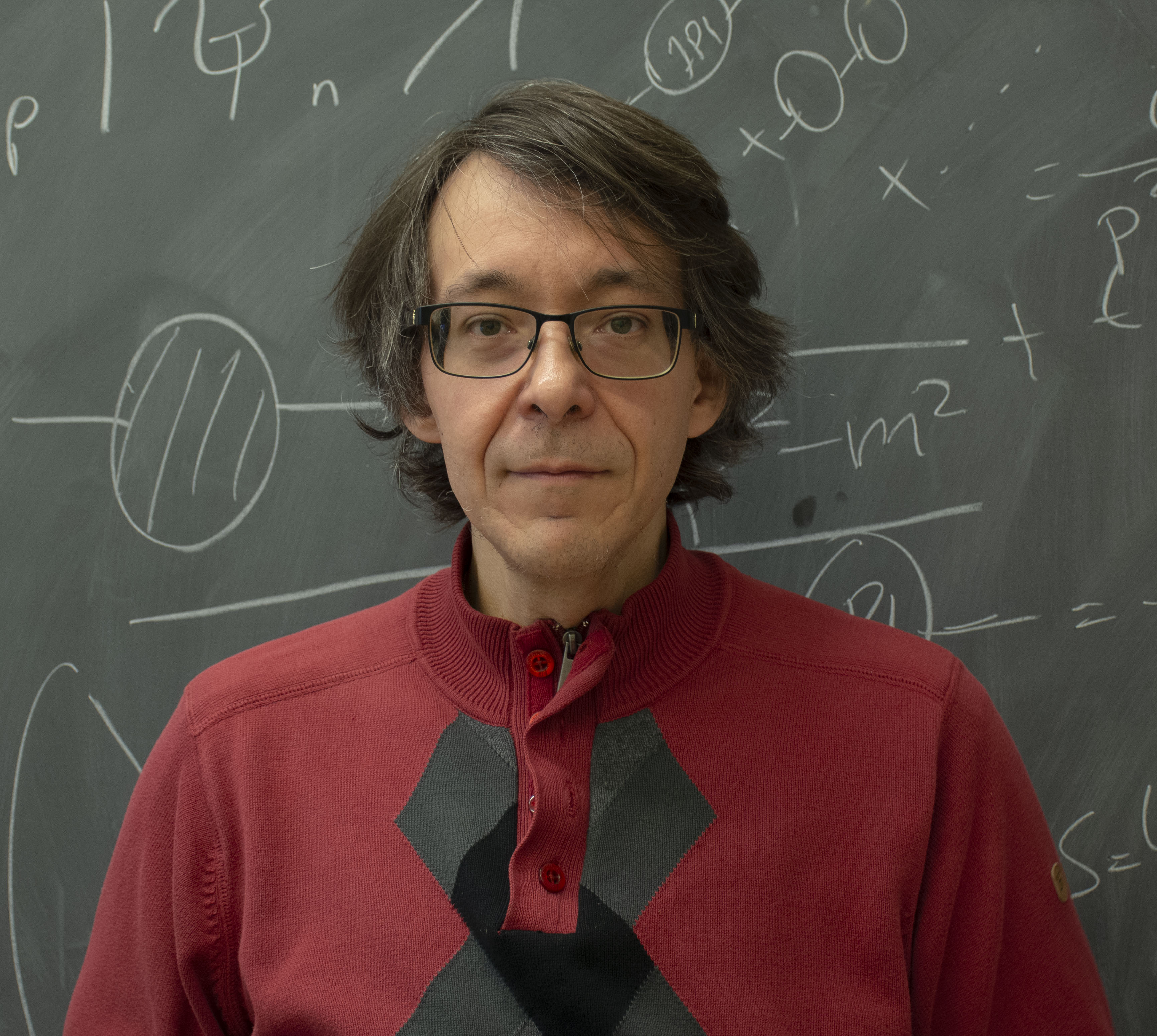Research Interests
- Physics education, magnetic monopoles, and dark matter
The Quantum Theory of Fields (QFT) is the name given to the mathematical framework unifying quantum mechanics with special relativity. The quantum theory of the strong nuclear force, Quantum Chromodynamics (QCD) and Quantum Electrodynamics (QED), the quantum theory of the electromagnetic interactions, are examples of these quantum field theories. These theories are among the most successful in the history of physics, having been tested to unprecedented precision.
Unfortunately, while QFT has been quite successful in describing the behavior of matter while subjected to three of the four fundamental interactions, it fails when it attempts to describe gravity. The formulation of a reasonable quantum theory of gravity therefore represents a substantial challenge. Though several approaches to this problem have been taken, at the moment none of the candidate theories have any significant experimental support. Though the details of a fully quantum theory of gravity are not known, there are effective and/or semi classical approaches to the problem which are based on traditional and mostly well understood, classical and quantum field theories. Working out the consequences of these approaches might then serve to guide more fundamental searches for a full quantum theory of gravity.
Further, the standard model does not contain a viable candidate that can explain dark matter, dark energy or the observed matter/antimatter asymmetry of the Universe. Extensions to the standard model that explain these phenomena, know as beyond the standard model models (BSM) are therefore critically needed. In order to determine which of the many possible models are viable, contact with experiment is key. Investigations of the phenomenology of BSM models involves drawing together data from cosmological sources, direct detection experiments and accelerator based experiments.
At the moment I am working closely with the MoEDAL experiment
to search for avatars of new physics that would allow us to determine how to move beyond the standard model. In particular I am heavily involved with the MAPP extension of this experiment that will be searching for mini-charged particles
, particles that have a charge that is a small fraction of that of the electron, as well as particles with anomalously large electric dipole moments
, among other possible such avatars of new physics. I am also interested in the phenomenology of hidden sector theories
in general as well as in effective field theory descriptions of magnetic monopoles.
Finally, I also have a small research program in physics education. My collaborators and I are trying to understand the dynamics of small groups which are working on scientific activities. We are interested in determining how such groups regulate themselves, how their dynamics evolve, and the nature of the discourse and group roles in this setting. The end goal of this student is to understand how such groups work, and how they could be made to work better.
Publications
Current Courses Taught
- Phys 119: General Physics II
- Phys 202: Classical Mechanics I
- Phys 301: Classical Mechanics II
- Phys 401: Quantum Mechanics I
- Phys 498: Senior Research
- Phys 499: Honours Thesis
- Phys 803: Quantum Field Theory
